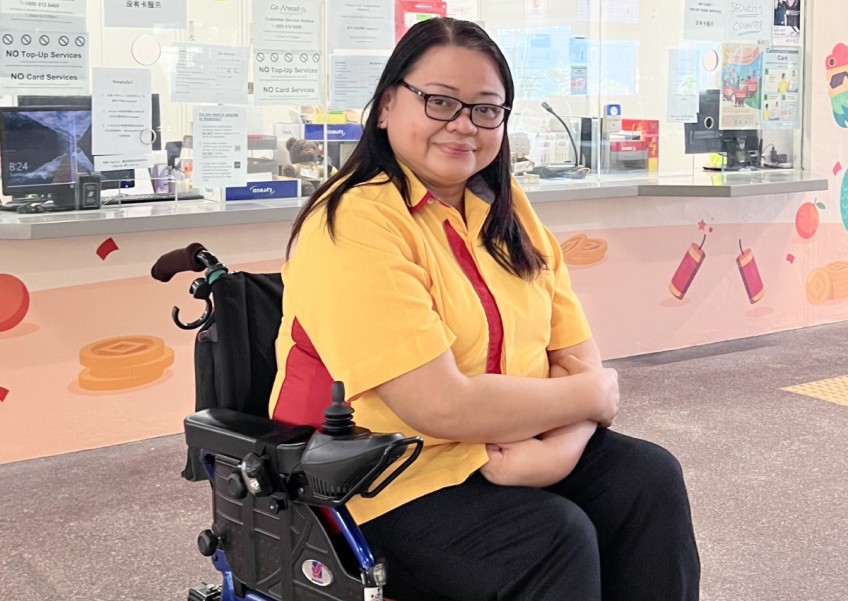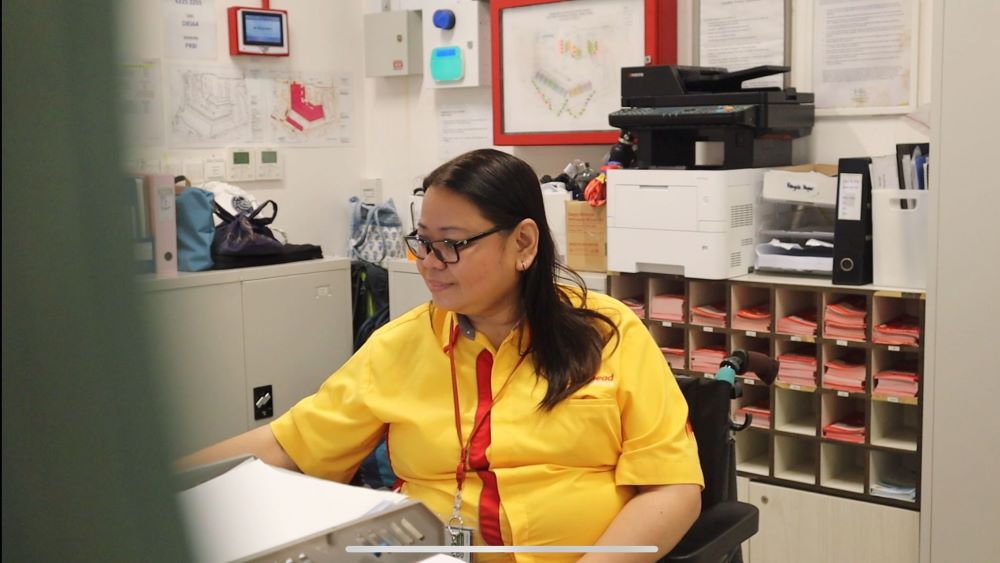Can't cook, drive or work: Woman who had stroke shares how she overcame the odds


 PUBLISHED ONMarch 08, 2024 8:10 AMByMelissa Teo
PUBLISHED ONMarch 08, 2024 8:10 AMByMelissa Teo To mark International Women's Day on March 8, AsiaOne will be spotlighting inspiring women from different walks of life. You can find them all here.
It was just another casual meetup for breakfast with her friends.
But halfway through the meal, Nor Harienti Abdul Gani suddenly could not feel the left side of her body. Worried, her friends rushed her to the hospital.
There, her world came crashing down, when she learned that she had a stroke caused by her high blood pressure.
The illness, which struck her in February 2014, changed her life forever.
"During this period, it was really hard on me," Harienti, now 50, told AsiaOne.
But while the ordeal has left her with mobility issues, the tenacious woman has since bounced back and is even back in the workforce.
"It wasn't easy, but I persevered," she said.
Needless to say, her road to recovery was fraught with challenges.
After her stroke, Harienti was dependent on her wheelchair.
She had trouble even with simple chores and activities like cooking.
"My passion is cooking, and it was very frustrating to not be able to do what I love," she recounted.
"It was really difficult to do things with only one hand."
She had also been declared unfit for work for a year and could not return to work.
To improve her mobility, she sought physical therapy at charity organisation Serving People with Disabilities.
At the therapy sessions, she had opportunities to cook as there are kitchen tools designed for those who have mobility only in one hand.
While she cannot afford to buy the tools for home use, she has since managed to do light cooking at home.
But cooking at home remains a challenge for her as she has trouble cleaning up after.
Therapy also helped her return to the workforce in 2016. Her first job after her stroke was as an administrative assistant for Care Singapore, an organisation that helps vulnerable youths.
She was there for three years before leaving for another administrative job, where she also stayed for three years.
Harienti, who can speak Malay and Mandarin, is now a customer service officer at contracted bus operator Go-Ahead Singapore, a job she started in June last year.

Her duties include answering calls, as well as assisting senior citizens with their travel cards and commuters with lost items.
Sometimes, she also helps visually impaired commuters navigate the bus system.
Another activity that Harienti returned to was driving.
Stroke survivors are allowed to drive as long as they get the green light and a memo from their doctor.
They also need to pass a formal driving assessment, which requires a referral from a doctor, according to HealthXchange.sg.
Harienti can only use her right hand to drive and operate only automatic cars.
Another activity that she is still struggling to go back to using is her digital camera for photography.
"Now, I can only use my handphone. My camera has been hibernating for a long time," she said.
Still, Harienti takes comfort in every little stride she makes. One of her proudest moments was when she tried to walk without any assistance.
She was alone in her room then and decided to give it a shot.
"I told myself I can do it," she recounted.
So, she took her walking aid and took a few steps into the kitchen, where her mother was cooking.
"I stood behind her and stayed there until she noticed I was there."
When her mother finally did, she exclaimed: "Eh! You can walk!"
While we celebrate women like Harienti this International Women's Day, she reminds us that women like her mother should be celebrated, too.
Seeing her mother stay strong during her recovery process has in turn taught Harienti to be more compassionate and empathetic.
"My mum is my strength. During my journey, she was always there for me," she said.
ALSO READ: She quit to care for twins with autism, launches online business to help other parents
melissateo@asiaone.com